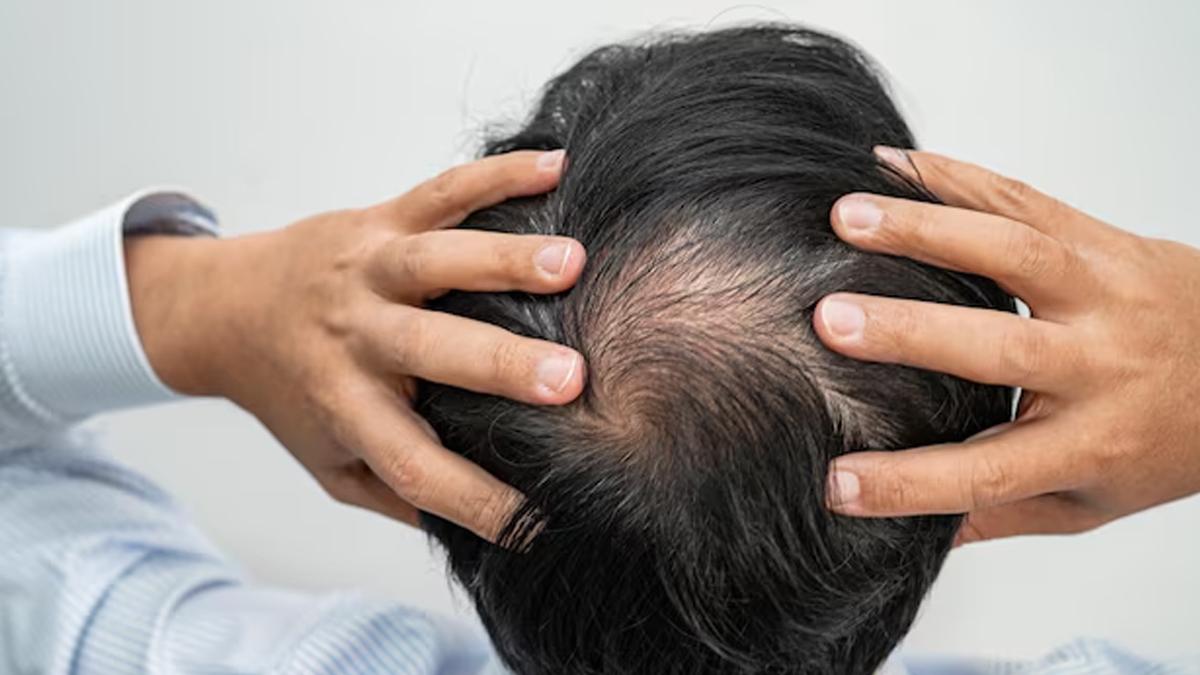
Have you noticed more hair shedding than usual while taking Ozempic and wondered if the two are connected? Ozempic, known for its benefits in managing type 2 diabetes and aiding weight loss, has sparked conversations about potential side effects, including hair loss. Though this isn’t an officially recognised side effect, some users have raised concerns. To demystify this, we spoke to Dr Pranav A Ghody, Endocrinologist, Wockhardt Hospital, Mumbai Central, who explained this link and how you can protect your hair while staying on track with your health goals.
Table of Content:-

According to a 2017 study, Ozempic (semaglutide) is a medication that helps adults with type 2 diabetes manage their blood sugar levels. It gives best results when combined with a healthy diet and regular exercise. The drug comes in a prefilled pen containing a liquid, making it easy to use.
Is Hair Loss a Side Effect of Ozempic?

“Hair loss may not be a commonly reported side effect of Ozempic, however, some people on the medication have experienced thinning hair or increased shedding. It is likely not a direct consequence of the drug itself but could be attributed to other factors, such as rapid weight loss, nutritional deficiencies, or underlying health conditions,” explained Dr Ghody.
Connection Between Weight Loss and Hair Loss

Hair loss during Ozempic treatment is often associated with rapid weight loss rather than the medication. “When the body undergoes significant changes, such as rapid weight reduction, it may prioritise essential functions over hair growth, leading to temporary shedding. This condition is called telogen effluvium and is common during physical or emotional stress,” said Dr Ghody.
According to a 2020 study, telogen effluvium is a scalp disorder involving excessive hair shedding and is one of the common causes of alopecia.
Not only this, according to the American Hair Loss Association (AHLA), hormonal changes caused by Ozempic and similar medications may also trigger early signs of male and female pattern hair loss, known as androgenic alopecia. Androgenic alopecia is a progressive condition that can worsen over time, leading to permanent hair loss.
Also Read: What is ‘Ozempic Butt’? Expert Shares Tips On How To Manage This Side Effect
How to Minimise Hair Loss While on Ozempic
To prevent or reduce hair loss, consider the following expert-recommended tips:

- Do not neglect the benefits of a nutrient-rich diet. Make sure to include adequate protein, iron, and vitamins like biotin and zinc.
- You can supplement with nutrients if you identify any deficiencies through tests.
- Maintain a gradual and sustainable weight loss plan to avoid undue stress on the body.
- Consult your healthcare provider to rule out other causes of hair loss, such as hormonal imbalances or thyroid dysfunction.
If you notice significant hair loss while using Ozempic, it’s essential to consult a healthcare professional. They can identify potential underlying causes and recommend effective treatments.
Also Read: Do Plucking Out Grey Hair Lead More To Grow? We Asked Expert
Bottomline
Dr Ghody concluded, “While Ozempic itself is unlikely to cause hair loss, rapid weight loss and related nutritional changes might contribute to thinning hair. Addressing these factors with a well-balanced diet and professional guidance can help you enjoy the benefits of Ozempic without compromising overall health. Always discuss any concerns with your doctor for tailored advice.”
[Disclaimer: This article contains information provided by an expert and is for informational purposes only. Hence, we advise you to consult your professional if you are dealing with any health issues to avoid complications.]
Also watch this video
How we keep this article up to date:
We work with experts and keep a close eye on the latest in health and wellness. Whenever there is a new research or helpful information, we update our articles with accurate and useful advice.
Current Version